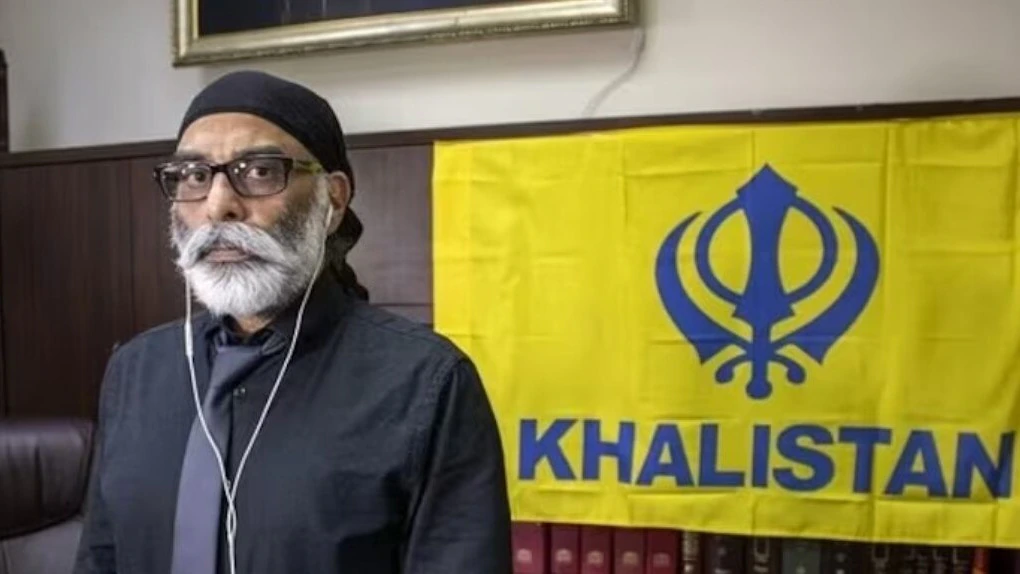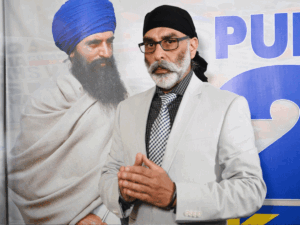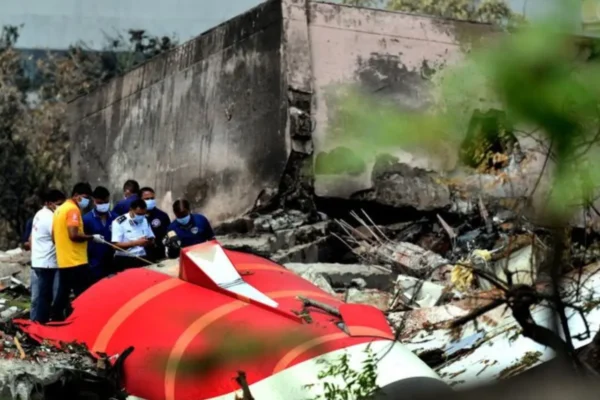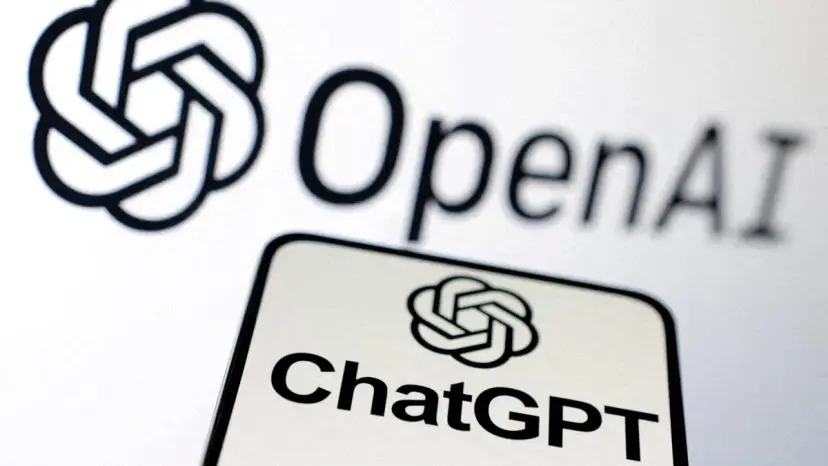

Assassination Attempt on Gurpatwant Singh Pannun: Crucial Moments and Charges Against India’s Ex-RAW Official
In a startling revelation, Vikas Yadav, a former officer of India’s highly secretive Research and Analysis Wing (RAW), has been charged by the U.S. Justice Department over a foiled attempt to assassinate Sikh separatist leader Gurpatwant Singh Pannun. It has generated much hype globally, especially in terms of the geopolitical implications of relations between the U.S. and India. Details of conspiracy, international coordination, and an attempt to retaliate against a U.S. citizen underlie this plot.
1. Who is Gurpatwant Singh Pannun?
Gurpatwant Singh Pannun is a dual citizen of the U.S. and Canada and an activist in favor of a proposed state of a separate Sikh state called Khalistan.
Pannun is an outspoken critic of India’s government. India identifies Pannun as well as other Sikh separatists as a “terrorist” and a threat to national security.
His campaign has become a thorn between the Indian government and the global Sikh diaspora, which has been on full strength in the U.S. and Canada.

2. The Assassination Plot
Recently, the U.S. Justice Department has unsealed an indictment that charges former RAW officer, Vikas Yadav, with conspiring to murder Pannun. This is on a multi-county conspiracy to hire hitmen.
The plot began in May 2023 when Yadav, allegedly at the time still an employee of the Indian government, conspired to murder Pannun through operatives both in India and abroad.
Another Indian national, Nikhil Gupta, Yadav had enlisted in the plot. Gupta was instrumental in hiring a hitman to commit the murder on U.S. soil.
3. Counts Filed Against Vikas Yadav
Vikas Yadav has been charged with three core counts:
Hiring murder: The indictment claims Yadav allegedly conspired to plot the murder of Pannun.
Conspiracy to commit murder: Yadav was said to have conspired with Gupta and others to carry out the attack.
Money laundering: Funds were allegedly transferred to carry out the plot. This gives another dimension to the crime-the financial conspiracy too.
So far, Yadav is on the run, and nobody knows where he is.
4. Nikhil Gupta’s involvement
Nikhil Gupta was arrested in Prague in 2023 and was extradited to the United States. In June 2023, Gupta was formally indicted with pleading not guilty to the charges.
Gupta, Yadav said was such a main coordinator with the would-be hitman as instructed. His being caught from Europe highlights just how international this plot was and also the inter-governmental cooperation that has helped to derail this assassination attempt.
5. India’s Response and Denials
The Indian government has officially denied any involvement in the attempt. According to statements made by the Ministry of External Affairs (MEA), Vikas Yadav is “no longer an employee of the Indian government.”
India branded Pannun and other Khalistani leaders as terrorists, which may justify its security stance, but distanced itself from the specific allegations tied to Yadav.
In a quick riposte to the unsealing of the indictment India has sent a high-level enquiry committee to the U.S. to see the evidence, to be able to maintain diplomatic cooperation with the U.S. over this sensitive issue.
6. U.S. Government’s Response and Diplomatic Implications
The U.S. government is showing keen interest in this case, stating that violence or threat against U.S. citizens like Pannun is absolutely prohibited, and FBI Director Christopher Wray has reaffirmed that the attempts being made to undermine the rights of U.S. residents are totally opposed to him.
Attorney General Merrick Garland reiterated the same idea by stating that the Justice Department will actually pursue justice where the rights of American citizens are endangered.
Diplomatic channels between India and the U.S. remain open, with the latter saying it is satisfied by the cooperation extended to it from the Indian side in the investigation process. The State Department officials stated that both the nations are working together for the investigation.
7. Geopolitical Tensions and Wider Perspective
The case reflects sub-textual tensions between India and the international Sikh separatist community, and this is more so given the broader geopolitical dynamics of actions which crossed over national borders.
India has endured continuous condemnations from secessionist Sikh groups the world over, particularly in the U.S., Canada, and the U.K. through continual Khalistan protests. Indian officials haven’t ceased to address what they perceive as foreign interference with regards to its internal affairs.
This case further accrues to the already fragile global relationship between India and some of its strategic allies, such as the U.S., as it tries to strike a delicate balance between its international links and its internal security.
8. Ongoing Investigations and Litigations
Proceedings continue in U.S. Nikhil Gupta has not been yet put on trial, and Vikas Yadav is not picked up till date.
Declassification of the indictment filed against Yadav happened in just a few days after the visit of enquiry committee from India to U.S., which proves that both governments are keeping coordination alive.
While the U.S. continues to maintain this strict position that it took in relation to citizen security, diplomatic relations with India seem sound in terms of cooperation rather than confrontation.
9. Conclusion
The alleged plot to assassinate Gurpatwant Singh Pannun, which apparently was initiated by former RAW officer Vikas Yadav, has sent shockwaves through both the diplomatic and legal systems. And while India denies that she is a ‘direct agent’, this case marks yet another example of how complicated international relations become in times of cross-border security issues. This time, it’s the world watching how these governments in the long term will respond to acts such as this assassination attempts and what this might eventually mean for US-India relations.
This is a case that unfolds the complex web of geopolitics, legal proceedings, and international cooperation needed to win over security concerns in a globalized world. Through investigating it, it will define the moment of India’s foreign relations and its approach towards Sikh separatist movements abroad.






Добрый день!
Долго думал как поднять сайт и свои проекты и нарастить ИКС Яндекса и узнал от гуру в seo,
энтузиастов ребят, именно они разработали недорогой и главное буст прогон Xrumer – https://www.bing.com/search?q=bullet+%D0%BF%D1%80%D0%BE%D0%B3%D0%BE%D0%BD
Использование форумного постинга для SEO повышает видимость сайта. Xrumer позволяет автоматизировать размещение ссылок. Массовый прогон ускоряет рост DR. Это экономит силы специалистов. Использование форумного постинга для SEO – современная SEO-стратегия.
пф сео что это, компании сео топ сайт, Как использовать Xrumer для SEO
контент маркетинг линкбилдинг, seo продвижение заказать краснодар, правильный сайт продвижение
!!Удачи и роста в топах!!
Доброго!
Долго ломал голову как поднять сайт и свои проекты и нарастить CF cituation flow и узнал от гуру в seo,
профи ребят, именно они разработали недорогой и главное top прогон Хрумером – https://www.bing.com/search?q=bullet+%D0%BF%D1%80%D0%BE%D0%B3%D0%BE%D0%BD
Xrumer рассылка форумов – это быстрый способ увеличить показатели SEO. Прогон ссылок Хрумером позволяет быстро создать ссылочную массу. Форумный линкбилдинг подходит для сайтов любой тематики. Увеличение DR сайта возможно за счёт грамотного планирования рассылок. Используйте программы для автоматического постинга для лучших результатов.
как научится сео, dr web официальный сайт бесплатно для windows 10, Как поднять DR Ahrefs
линкбилдинг правила, seo виды, seo ключевые слова тильда
!!Удачи и роста в топах!!
**mind vault**
mind vault is a premium cognitive support formula created for adults 45+. It’s thoughtfully designed to help maintain clear thinking
**glpro**
glpro is a natural dietary supplement designed to promote balanced blood sugar levels and curb sugar cravings.
**sugarmute**
sugarmute is a science-guided nutritional supplement created to help maintain balanced blood sugar while supporting steady energy and mental clarity.
**vitta burn**
vitta burn is a liquid dietary supplement formulated to support healthy weight reduction by increasing metabolic rate, reducing hunger, and promoting fat loss.
**synaptigen**
synaptigen is a next-generation brain support supplement that blends natural nootropics, adaptogens
**glucore**
glucore is a nutritional supplement that is given to patients daily to assist in maintaining healthy blood sugar and metabolic rates.
**prodentim**
prodentim an advanced probiotic formulation designed to support exceptional oral hygiene while fortifying teeth and gums.
**nitric boost**
nitric boost is a dietary formula crafted to enhance vitality and promote overall well-being.
**sleeplean**
sleeplean is a US-trusted, naturally focused nighttime support formula that helps your body burn fat while you rest.
**wildgut**
wildgutis a precision-crafted nutritional blend designed to nurture your dog’s digestive tract.
**mitolyn**
mitolyn a nature-inspired supplement crafted to elevate metabolic activity and support sustainable weight management.
**yu sleep**
yusleep is a gentle, nano-enhanced nightly blend designed to help you drift off quickly, stay asleep longer, and wake feeling clear.
**zencortex**
zencortex contains only the natural ingredients that are effective in supporting incredible hearing naturally.
**breathe**
breathe is a plant-powered tincture crafted to promote lung performance and enhance your breathing quality.
**prostadine**
prostadine is a next-generation prostate support formula designed to help maintain, restore, and enhance optimal male prostate performance.
**pineal xt**
pinealxt is a revolutionary supplement that promotes proper pineal gland function and energy levels to support healthy body function.
**energeia**
energeia is the first and only recipe that targets the root cause of stubborn belly fat and Deadly visceral fat.
**prostabliss**
prostabliss is a carefully developed dietary formula aimed at nurturing prostate vitality and improving urinary comfort.
**boostaro**
boostaro is a specially crafted dietary supplement for men who want to elevate their overall health and vitality.
**potent stream**
potent stream is engineered to promote prostate well-being by counteracting the residue that can build up from hard-water minerals within the urinary tract.
**hepato burn**
hepato burn is a premium nutritional formula designed to enhance liver function, boost metabolism, and support natural fat breakdown.
**hepatoburn**
hepatoburn is a potent, plant-based formula created to promote optimal liver performance and naturally stimulate fat-burning mechanisms.
**flow force max**
flow force max delivers a forward-thinking, plant-focused way to support prostate health—while also helping maintain everyday energy, libido, and overall vitality.
**neurogenica**
neurogenica is a dietary supplement formulated to support nerve health and ease discomfort associated with neuropathy.
**cellufend**
cellufend is a natural supplement developed to support balanced blood sugar levels through a blend of botanical extracts and essential nutrients.
**prodentim**
prodentim is a forward-thinking oral wellness blend crafted to nurture and maintain a balanced mouth microbiome.
**revitag**
revitag is a daily skin-support formula created to promote a healthy complexion and visibly diminish the appearance of skin tags.
admagnet.click – Navigation felt smooth, found everything quickly without any confusing steps.
trafficcore.click – Loved the layout today; clean, simple, and genuinely user-friendly overall.
clickempire.click – Bookmarked this immediately, planning to revisit for updates and inspiration.
adengine.click – Color palette felt calming, nothing distracting, just focused, thoughtful design.
promojet.click – Content reads clearly, helpful examples made concepts easy to grasp.
trafficedge.click – Bookmarked this immediately, planning to revisit for updates and inspiration.
marketlaunch.click – Found practical insights today; sharing this article with colleagues later.
Sảnh chơi bắn cá tại game xn88 tuy ra mắt đã lâu nhưng sức hút mang lại trong cộng đồng cược thủ chưa từng hạ nhiệt. Thành viên tham gia được hóa thân thành những ngư thủ thực thụ, chinh phục đa dạng loài sinh vật biển với nhiều mức độ khác nhau. Anh em cần chuẩn bị các dụng cụ hỗ trợ tương ứng, vũ khí hiện đại để có thể săn về cho mình những boss khủng, cơ hội kiếm số tiền lớn nhé.
188v Đăng ký tài khoản tại đây là bước đầu tiên để bạn có thể tham gia vào các trò chơi và dịch vụ cá cược trực tuyến hấp dẫn. Quy trình này vô cùng đơn giản, chỉ mất vài phút để hoàn tất. Dưới đây là hướng dẫn cụ thể để bạn có thể dễ dàng tạo tài khoản và bắt đầu trải nghiệm ngay.
Về tiềm lực tài chính, slot365 đăng nhập mỗi tháng có hơn 12 nghìn tỷ đô được công ty chủ quản “đổ vào”. Đây cũng là lý do vì sao nhà cái lại chưa một lần “dính” phải tin đồn lừa đảo hay quỵt tiền hội viên. Thay vào đó là tỷ lệ thưởng cao, khuyến mãi hấp dẫn, đại lý hoa hồng khủng.
Về tiềm lực tài chính, slot365 đăng nhập mỗi tháng có hơn 12 nghìn tỷ đô được công ty chủ quản “đổ vào”. Đây cũng là lý do vì sao nhà cái lại chưa một lần “dính” phải tin đồn lừa đảo hay quỵt tiền hội viên. Thay vào đó là tỷ lệ thưởng cao, khuyến mãi hấp dẫn, đại lý hoa hồng khủng.
Truy cập bắn cá asia slot365, bạn có thể nhận ngay tiền thưởng từ giải Jackpot khi hạ gục boss thành công. YL, JDB, BBIN,… cung cấp hơn 1.000+ sinh vật biển bí ẩn đi kèm với hơn 55+ loài cá đặc biệt sở hữu hệ số nhân cực cao, cho phép bạn hốt gấp 750X tiền thưởng về túi.
live cam chat stranger video chat
казіно з бонусами бонуси казіно
Хочешь развлечься? купить мефедрон федерация – это проводник в мир покупки запрещенных товаров, можно купить гашиш, купить мефедрон, купить кокаин, купить меф, купить экстази, купить альфа пвп, купить гаш в различных городах. Москва, Санкт-Петербург, Краснодар, Владивосток, Красноярск, Норильск, Екатеринбург, Мск, СПБ, Хабаровск, Новосибирск, Казань и еще 100+ городов.
1win сайт 1win официальный сайт скачать
бонуси казіно бонуси казино
грати слоти слоти ігрові автомати
ігри казино онлайн ігри казино
aplikacja mostbet pobieranie mostbet na androida